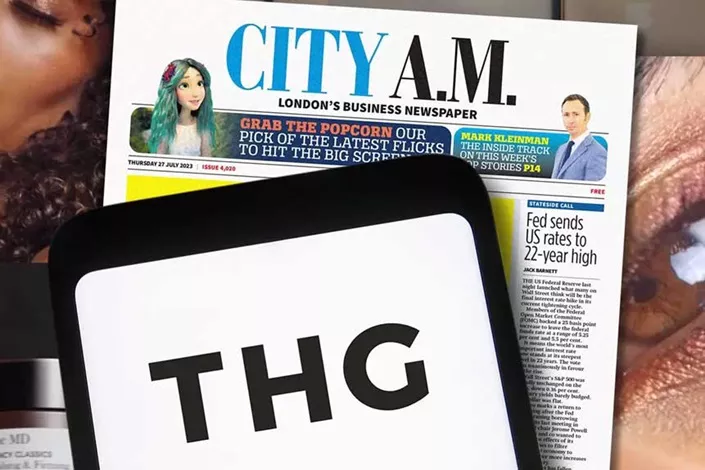THG PLC, formerly known as The Hut Group, is a UK-based e-commerce company that operates several well-known brands, including Myprotein, Lookfantastic, and Cult Beauty. Since its initial public offering (IPO) in 2020, THG’s share price has experienced a significant decline, dropping by approximately 95% over the past five years. This article explores the various factors contributing to the decline in THG’s share price, including financial performance, strategic decisions, corporate governance issues, and market conditions.
Financial Performance and Profit Warnings
THG’s financial performance has been a major factor in the decline of its share price. In the first half of 2024, the company reported a 3.6% decrease in group revenue to £934 million, down from £969.3 million the previous year. This decline was attributed to the strategic exit of non-core divisions, discontinued categories, and short-term volume reductions within THG Beauty manufacturing.
Despite an increase in adjusted EBITDA to £48.8 million from £32.3 million in H1 2023, operating losses widened to £99.5 million, compared to £89.2 million in the same period the previous year. The company also lowered its full-year revenue forecast, signaling a potential decline by as much as 5%.
These financial results have raised concerns among investors about THG’s profitability and growth prospects, leading to a significant drop in the company’s share price.
Strategic Decisions and Business Restructuring
THG has undertaken several strategic decisions aimed at restructuring its business and improving financial performance. The company has been streamlining operations by exiting non-core divisions and focusing on its core segments: Beauty, Nutrition, and Ingenuity. This restructuring has involved the disposal of loss-making businesses, such as the OnDemand division, which underwent a management buyout.
Additionally, THG has implemented cost-cutting measures, including reducing its workforce by 2,500 employees since the start of 2022. The company has also invested in technology and automation to improve distribution and administrative costs.
While these strategic decisions are aimed at improving the company’s long-term prospects, they have also led to short-term challenges and uncertainties, contributing to the decline in THG’s share price.
Corporate Governance Issues
Corporate governance concerns have also played a role in the decline of THG’s share price. In 2021, founder and CEO Matt Moulding relinquished his “golden share,” which had allowed him to veto hostile takeover bids. This move was intended to improve corporate governance and attract institutional investors. However, it also signaled a potential shift in control and raised questions about the company’s strategic direction.
Furthermore, THG has faced criticism over its complex corporate structure and lack of transparency. Investors have expressed concerns about related-party transactions and the company’s reliance on its founder. These governance issues have undermined investor confidence and contributed to the decline in the share price.
Market Conditions and Competitive Landscape
The broader market conditions and competitive landscape have also impacted THG’s share price. The e-commerce sector has become increasingly competitive, with established players and new entrants vying for market share. This competition has put pressure on THG’s margins and growth prospects.
Additionally, macroeconomic factors such as inflation, rising interest rates, and supply chain disruptions have affected consumer spending and increased operational costs. These challenges have further strained THG’s financial performance and investor sentiment.
Conclusion
THG’s share price decline can be attributed to a combination of factors, including disappointing financial performance, strategic restructuring, corporate governance concerns, and challenging market conditions. While the company has taken steps to address these issues, such as focusing on core segments and improving transparency, the path to recovery remains uncertain. Investors will closely monitor THG’s ability to execute its strategy, improve profitability, and restore confidence in the company’s long-term prospects.
Related Topics:


